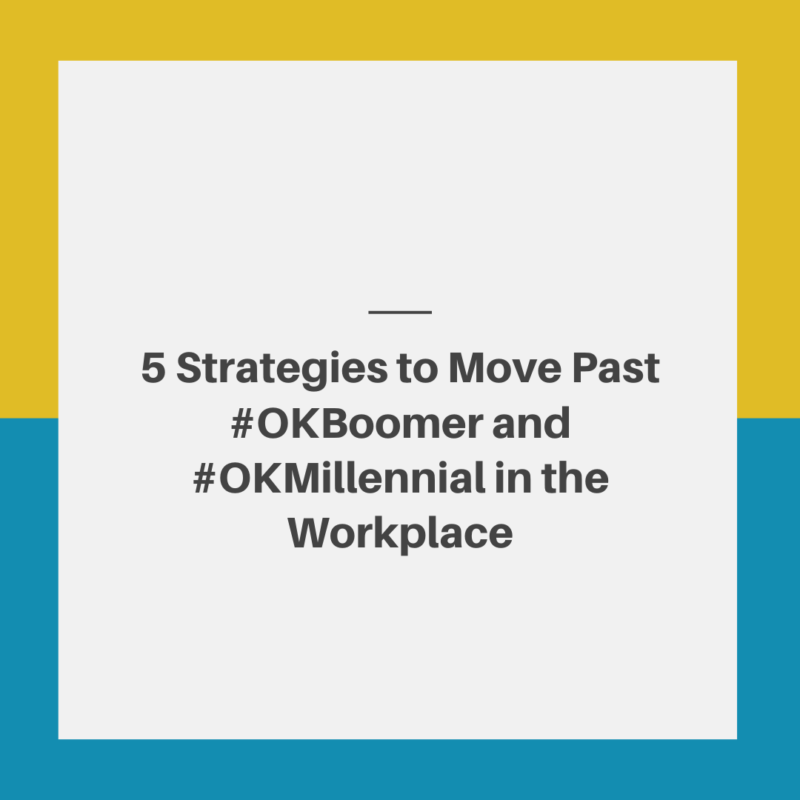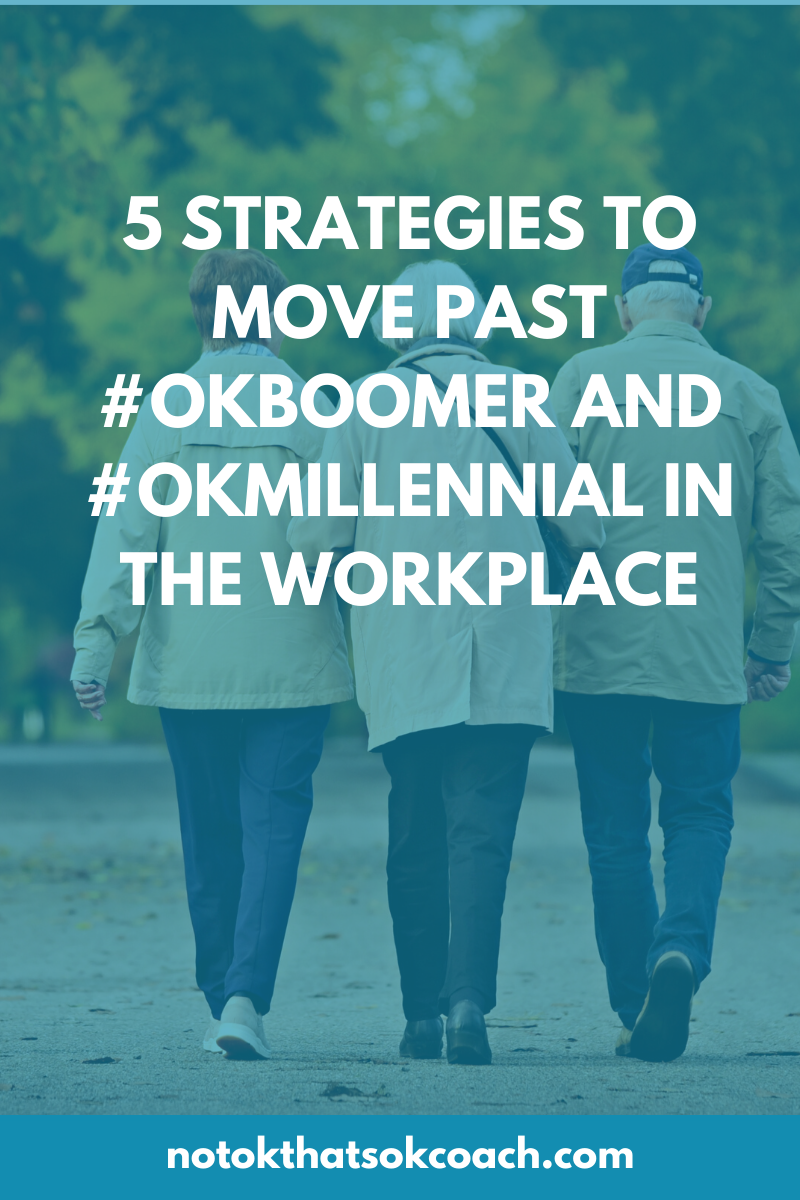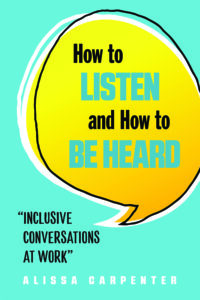You might have seen the #OKBoomer and #OKMillennial memes, shirts, and YouTube videos but what do they really mean and how do these hashtags impact our workforce? Both of these phrases publicly criticize someone from that generation. It could be in terms of them being “out of touch” or “lazy” or any other host of insults associated with boomers and millennials. These call outs are usually brought to light by someone of another generation. For example, a colleague’s son used “#OKBoomer” to reference how long it took her to figure out how to turn off her new phone.
But this phrase is not just being used in personal spaces and is now creeping into the workplace. Bringing even more attention for the need to create spaces for employees across generations to build authentic and meaningful relationships. Without knowing the people, we work with, generation and otherwise, it’s easy to make assumptions.
So how do we move past the assumptions and insults and provide spaces and get to know the people that work with and for us? It begins by communicating across our differences.
Reverse Mentoring
This is a great way to give employees of two different generations (typically one older and one younger) a chance to learn from one another. It’s a mutual partnership that helps bridge skill gaps and can be a refreshing change of pace for both parties. For example, a Gen Z employee may be able to share their experience working with the latest social sharing website with the Boomer and explain how using it can increase sales of a new product, whereas the Boomer may be able to provide the Gen Z employee with access to higher-level meetings. This access can give the Gen Z employee a chance to meet the senior leadership team. Unlike your typical mentor/mentee relationship, both parties are teaching and learning from each other. Some opportunities for discussion include sharing the following:
- Emerging trends, technology, and products within your industry
- Institutional knowledge of policies and procedures
- Strategies to enhance interpersonal relationships and soft skills
- Untapped outlets to reach a younger demographic
- Preferred mediums to better communicate with your staff
Get to Know Your Colleagues Outside the Office
The change of scenery can make a big difference in the level of conversations you have with colleagues. Moving from that stuffy conference room to a local coffee shop or a walk in the park can provide an equal playing field and an open mind. Taking the time to invite someone who you do not know well out for an informal conversation helps you not only get to know them better but may lead to a great professional partnership.
If you are unsure where to start, try starting with some of these questions:
- What was your first job and what did you learn from it?
- What professional organizations have you received value from?
- Do you have any podcast recommendations to learn more about enhancing communication skills?
- Where is your favorite vacation destination?

Attend an Employee Resource Group or Affinity Group Event
It’s hard to get to know people who are different from us, especially if we are constantly surrounding ourselves with people like us. Many organizations have employee resource groups (ERG) or affinity groups which are based on shared characteristics or life experiences. For example, Glaxo Smith Kline’s CLIMB group gives a voice to younger employees while invited employees of all levels and generations to their inclusive events. Look at what your company offers and show support, learn something new, and meet colleagues from across your organization.
Lunch and Learn
Regardless of age, everyone can provide value in their organization we just need the space to do show it. Participating or leading a lunch and learn (or brunch and learn) is a great way to share current trends in your field, review the company’s history, practice interpersonal skills, or share best practices. These informal programs can give the floor to all generations to share the knowledge and educate others. Think about the questions colleagues have been asking you and create a program around it or ask someone to share a skill set that you know employees will find valuable.
Community Hours
Ellevate, a global professional women’s network, holds community hours for their employees. During an event I attended, their CEO, Kristy Wallace, discussed how these open conversations and ongoing touchpoints allow their employees to discuss topics that impact their workforce and beyond. It also gives the chance for everyone to bring their whole self to work and for others to get to know who they are as a person. Identify a time and space where employees can get together to share current trends and issues they may be facing.
Building workplace relationships takes time and the #OKBoomer and #OKMillennial memes may not go away overnight. But as individuals, we can find opportunities and create spaces to get to know people who think, act, and experience life differently from ourselves. From there, we can humanize our workplaces one conversation at a time and move beyond these insulting phrases.
- Cultivating Relationships - July 20, 2021
- Empowering Our People - July 13, 2021
- Finding Purpose - July 6, 2021




